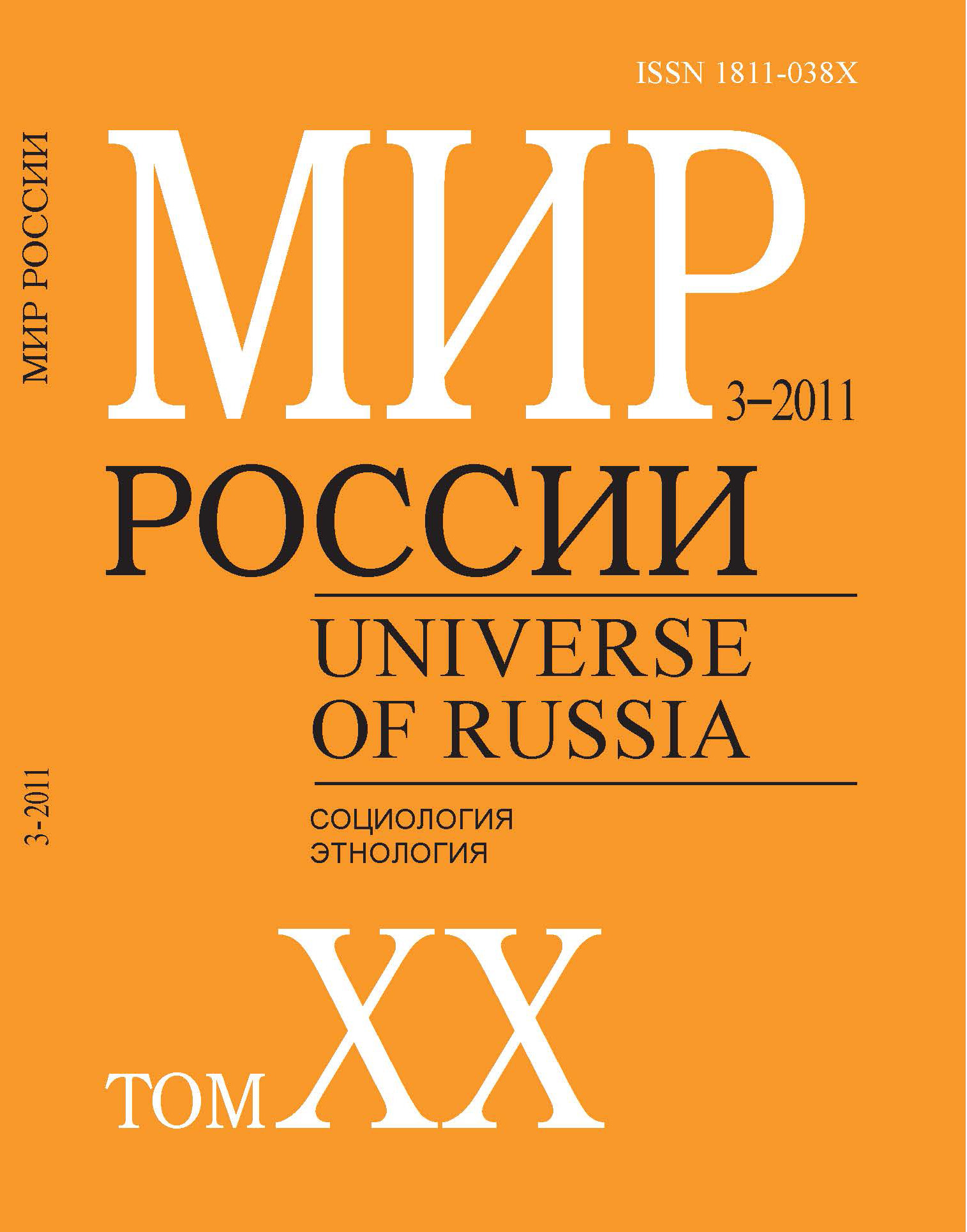The Lifestyle of Soviet Intellectuals in the 1960s in Moscow and Leningrad: the Analyses of Epistolary Heritage
Abstract
Sergey Smirnov — Director, Institute for Social Policy and Socio-Economic Programs, National Research University “Higher School of Economics”. Address: 20, Myasnitskaya St., Moscow, 101000, Russian Federation. E-mail: socpol@hse.ru
It is difficult to understand the life of preceding generations if one does not recourse to the information from the documents of the past. One of the most important sources to obtain such information is the archival files of households, namely the letters sent and received by their members. This paper deals with a particular case — letters from the personal archive of the author. This research contains pieces of those letters written by the intellectuals who lived in Moscow and Leningrad in the 1960s — the most populated cities of the former USSR. The ‘sample’ includes 33 letters written in the 1960s and 1970s by five correspondents (historians by their professional occupation) and addressed to the same recipient. Four of the correspondents represent the senior cohort in the generation of the “sixties” (i.e. 30-35 years old in 1960 and correspondingly 40-45 years old in the 1970s).
These mentioned pieces help reveal the attitude of their authors to the social and political issues of that time, their way of life in the “shortage economy”, cultural preferences, etc. One can also clearly see that the intellectuals of the so-called “sixties”, as a rule, did not share the official ideology of that period. A number of cited letters include pieces which show the authors’ complete rejection of Stalin and ‘Stalinism’. This was in spite of his “great merits for the USSR”, proclaimed in 1956 in one of the resolutions of the CPSU Central Committee and adopted four months later in the famous Khrushchev speech at the 20th Congress of the CPSU. They also criticize the concept of political reasonability in historical studies, being the advocates of historical truth. They laugh at the Soviet “election” system, where people had no choice but to elect a single candidate.
Some of the letters reveal the persistent shortage problem with some goods and services in the USSR. One can see that the Soviet people experienced a lack of not only high-quality clothes and shoes, but food as well, including fruits and vegetables. The housing conditions of those intellectuals living in Moscow and Leningrad in the 1960s were improved only by the end of the decade. The state and public agencies distributed lodging while the access to cooperative building societies for those who could afford to buy an apartment was, in fact, quite restricted. The explanation for this is very simple: the communist party was afraid of individual proprietorship — the opposite of national property.
However, in spite of everyday difficulties, the intellectuals had a choice about forms of their leisure. Tourist trips to famous destinations in the USSR and on rare occasions abroad — visiting exhibitions and museums, theatres and concerts, reading new books, etc. — constituted an important element of their lifestyle at that time. They also demonstrated a great interest in unofficial art, namely the ballad songs of Galich, Kim, Visbor, Visotskiy and others, well-known in the modern Russia. One can make a conclusion that in the 1960s Soviet intellectuals were a relatively liberated stratum in a country with restricted human rights. But such behavior was only possible to a certain extent: the Soviet system socially expelled those who openly opposed it.






